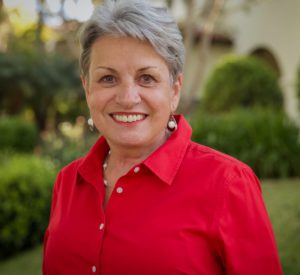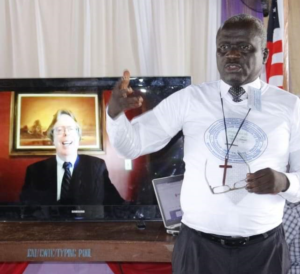Tagged: “Forgiveness Education”
Healing Hearts Hero Award Presented to Rosemary Kite
Rosemary Kite, founder and president of Forgive4Peace (2008-2018), has been selected to receive the International Forgiveness Institute’s (IFI’s) Healing Hearts Hero award. The award recognizes individuals who have developed collaborative partnerships with the IFI and its co-founder Dr. Robert Enright in order to promote the virtue of forgiveness on an international basis.
Formerly called Possumus International, the organization was created in 2008 with what Rosemary calls “the desire to overcome evil through a superabundance of good. And what better good could be provided to the world than instruction on how to exercise mercy towards one another, bridging the way to peace by teaching the importance and value of forgiveness at home, at school, and at work.”
Shortly after its founding, Possumus International (Latin for the words “we can”) became a 2009 Charter Member of the National September 11th Memorial and Museum. Then Rosemary and her colleagues initiated an annual “Family, Friends and Forgiveness” essay competition for girls 10-14 years old with the winners awarded camp scholarships.
In 2013, after learning about and wanting to be a part of the empowering work of the IFI, Rosemary established a “Families and Forgiveness” program that incorporated lessons from Dr. Enright’s A Family Guide to Forgiveness Education into private home settings.
Since then, Rosemary and Dr. Enright have collaborated on school Forgiveness Education projects around the world including those in: 1) Inner City Milwaukee, Wisconsin; 2) Belfast, Northern Ireland; 3) Liberia, West Africa; and, 4) the West Bank, Israel.
Forgive4Peace provided financial support for two IFI-hosted events—the Jerusalem Conference on Forgiveness (2017) and the Rome Conference on Forgiveness (2018). In July, Rosemary was an active participant at the International Educational Conference on Agape Love and Forgiveness in Madison, WI, that was hosted by the IFI and attended by 160 educators from the US, Northern Ireland, Taiwan, Israel, Spain, and the Philippines.
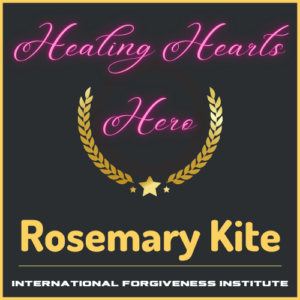 “Rosemary is a fabulous ambassador for forgiveness who has continually impressed me from the first day I met her,” according to Dr. Enright. “She is constantly trying to raise awareness of the importance and value of forgiveness in one’s everyday life. She definitely knows how to heal hearts through forgiveness.”
“Rosemary is a fabulous ambassador for forgiveness who has continually impressed me from the first day I met her,” according to Dr. Enright. “She is constantly trying to raise awareness of the importance and value of forgiveness in one’s everyday life. She definitely knows how to heal hearts through forgiveness.”
In her 2019 guest blog for this website, The Art and Science of Forgiveness, Rosemary wrote:
“The art and science of forgiveness suggests that the best medicine we can possibly take to improve our physical, psychological, social, and spiritual health, is forgiveness. Forgiveness is like the pill that offers the deepest healing of the wounds that fester in the human heart.”
Elsewhere she says: “As everyone who has ever had to forgive knows, every act of forgiveness begins with an injustice. We have wounded hearts all around us, everywhere we go. Why not try to be a healing heart to those we come across in our paths daily?”
Rosemary, who has a BA from California State University in San Francisco, has devoted her professional career to educational endeavors in the non-profit sector, primarily through the education of women and girls.
Agape Love and Forgiveness Conference Speaker Videos Available in Four Languages
Speaker videos from the International Educational Conference on Agape Love and Forgiveness, held July 19-20, 2022, in Madison, Wisconsin, USA, (funded by the John Templeton Foundation) can now be viewed online absolutely free in four languages–Arabic, English, Hebrew, and Mandarin–using the links below.
The 26 professionally produced presentations feature educators from Northern Ireland, Israel (both Hebrew- and Arabic-speaking), Taiwan, the Philippines, and the US. They describe their experiences teaching agape love and forgiveness to their 5th grade students and outline creative Forgiveness Education teaching techniques.

Inaugural Partnership Achievement Award Presented to Tim Markle
Tim Markle, founder and director of Forgiveness Factor, has received a partnership achievement award for his years of commitment to helping others learn about the virtues of self-forgiveness and interpersonal forgiveness.
Markle was recognized with the “Healing Hearts Hero” award by the International Forgiveness Institute (IFI), a 27-year-old not-for-profit organization that has established forgiveness education programs in more than 30 countries around the world. It was presented at the International Educational Conference on Agape Love and Forgiveness in Madison, WI, that was attended by 160 educators from the US, Northern Ireland, Taiwan, Israel, Spain, and the Philippines on July 19-20.

Tim Markle, a forgiveness advocate and founder of Forgiveness Factor, is the first recipient of the IFI’s prestigious “Healing Hearts Hero” award.
For the past 13 years, Markle has been an Outreach Specialist at the University of Wisconsin-Madison Waisman Center where his numerous titles include Director of the Southern Regional Center for Children and Youth with Special Health Care Needs. In those various capacities, Markle works to improve the lives of children and adults with developmental disabilities and neurodegenerative diseases, some of life’s most challenging conditions. He also develops curriculum for a variety of audiences, provides training for both children and adults, and is a prolific speaker.
Markle uses those same management and speaking skills to pursue his secondary passion of “educating people about the benefits of forgiveness”–the passion that earned him the Healing Hearts Hero award. In addition to teaching forgiveness techniques at workshops and conferences throughout the Midwest, Markle has teamed up with Stoughton Health to create a series of popular informational podcasts on the basics of forgiveness (i.e., “Forgiving Yourself” and “The Art of Forgiveness”). He also regularly sends out short written Forgiveness Boosts to his subscribers.
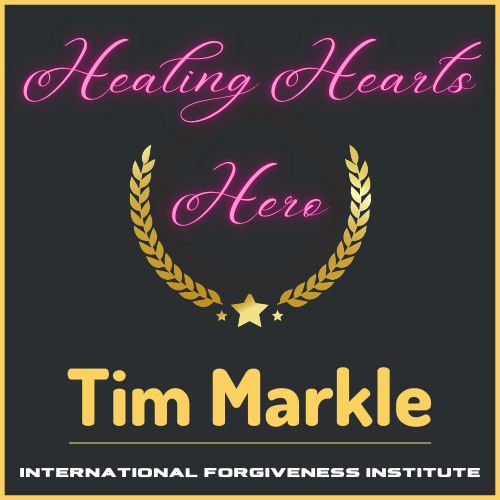 Through radio station Life 102.5FM in Madison, Markle has produced more than 50 short (2-4 minutes each) “Forgiveness Audio Boosts” that the station has been broadcasting since March 2021.
Through radio station Life 102.5FM in Madison, Markle has produced more than 50 short (2-4 minutes each) “Forgiveness Audio Boosts” that the station has been broadcasting since March 2021.
Markle even developed a six-week course that focuses on how to forgive and why forgiveness is indispensable for dealing with anger, depression, anxiety and trauma. The course is based on the ground-breaking scientific forgiveness research work of Dr. Robert Enright, co-founder of the IFI and an educational psychologist at the University of Wisconsin-Madison.
“Tim is a contributing writer for the IFI and the most prolific speaker we have for our Speaker’s Bureau service,” according to Dr. Enright “No one deserves this award more because Tim is not only one of our strongest forgiveness advocates, but he has created his own forgiveness education organization called Forgiveness Factor so he can even better broadcast his faith in forgiveness.”
The Toledo (Ohio) native has a BA degree in Psychology with a minor in Philosophy from Bowling Green State University (BGSU, Bowling Green, Ohio), a Masters in Counseling (MC) from John Carroll University (Cleveland, OH) and a Master of Arts in Christian Studies (MACS) from Trinity Evangelical Divinity School north of Chicago. He and his wife Tracy have two adult children and live in Stoughton, 20 miles east of Madison, WI.
Learn More:
- Visit the Forgiveness Factor
- Watch Markle’s podcasts at Health Talk Podcasts
- Listen to Forgiveness Audio Boosts
- Subscribe to receive Forgiveness Boost emails
- Read Tim Markle’s Bio
Forgiveness Research Goes Viral
Surging world-wide interest in the virtue of forgiveness was vividly demonstrated this week when the International Forgiveness Institute (IFI) released updated distribution totals for its prized Forgiveness Research Tools.
In just the past 17 months, the IFI has fulfilled requests for 717 copies of its Forgiveness Research Tools–requests received from individuals and research organizations in 41 countries and 43 US states plus the District of Columbia. The IFI began offering the tools for free on April 1, 2021.
The forgiveness tools were developed by IFI co-founder![]() Dr. Robert Enright and his associates through the Enright Forgiveness Lab that he established at the University of Wisconsin-Madison. Dr. Enright has validated those scientific measuring tools and used them in more than 50 forgiveness research projects he has conducted at locations around the world since 1993.
Dr. Robert Enright and his associates through the Enright Forgiveness Lab that he established at the University of Wisconsin-Madison. Dr. Enright has validated those scientific measuring tools and used them in more than 50 forgiveness research projects he has conducted at locations around the world since 1993.
By far the most popular and most requested forgiveness tool (223 requests) is the Enright
Self-Forgiveness Inventory (ESFI) that “captures the Aristotelian view of forgiveness as a moral virtue practiced toward the self.” According to Dr. Enright, the tool is based on the premise that “self-forgiveness is a moral virtue, not a psychological technique.”
Close behind in requests (201) is the Enright Forgiveness Inventory-30 (EFI-30)—a shortened version of the Enright Forgiveness Inventory for Adults that has become the interpersonal forgiveness measure tool of choice for research professionals since its development in 1995.
Two other forgiveness tools developed by Dr. Enright are also extremely popular:
- The Enright Forgiveness Inventory for Children—an objective measure of the degree to which one person forgives another who has hurt him or her deeply and unfairly (125 requests); and,
- The Enright Group Forgiveness Inventory—a newly-developed research tool that takes forgiveness from its traditional focus on individuals to a higher magnitude by concentrating on group forgiveness—an area of intervention that has dramatic implications for its ability to enhance peace efforts in the world (109 requests).
Dr. Enright is a licensed psychologist and an educational psychology professor at UW-Madison who pioneered the scientific study of forgiveness. He wrote the first scientific journal article on person-to-person forgiveness, is often introduced as “the father of forgiveness research,” and has been labeled “the forgiveness trailblazer” by Time magazine.
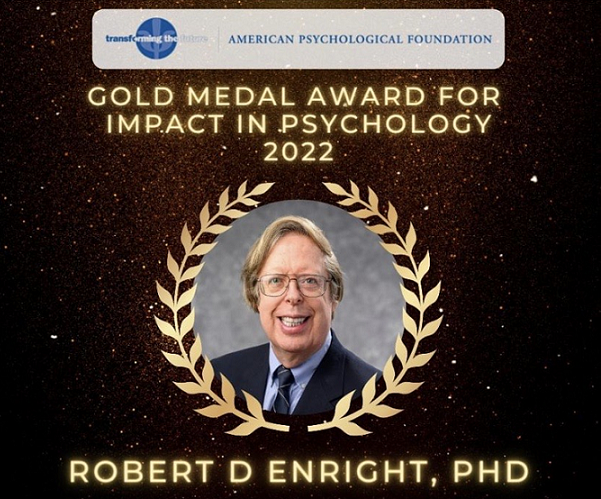 In 2019, Dr. Enright received the international Expanded Reason Award from the Universidad Francisco de Vitoria and the Vatican Foundation Joseph Ratzinger/Benedict XVI and he holds the Aristotelian Professorship in Forgiveness Science (2020) from UW-Madison. Earlier this year he was awarded the 2022 American Psychological Foundation Gold Medal Award for Impact in Psychology. His work integrates psychology, philosophy, and psychotherapeutic disciplines.
In 2019, Dr. Enright received the international Expanded Reason Award from the Universidad Francisco de Vitoria and the Vatican Foundation Joseph Ratzinger/Benedict XVI and he holds the Aristotelian Professorship in Forgiveness Science (2020) from UW-Madison. Earlier this year he was awarded the 2022 American Psychological Foundation Gold Medal Award for Impact in Psychology. His work integrates psychology, philosophy, and psychotherapeutic disciplines.
Dr. Enright’s 37-year quest to harness what he calls “the power of forgiveness” has resulted in the development of curriculum guides for students at each level from pre-kindergarten through 12th grade that are now being used in more than 30 countries around the world.
His groundbreaking clinical manual Forgiveness Therapy,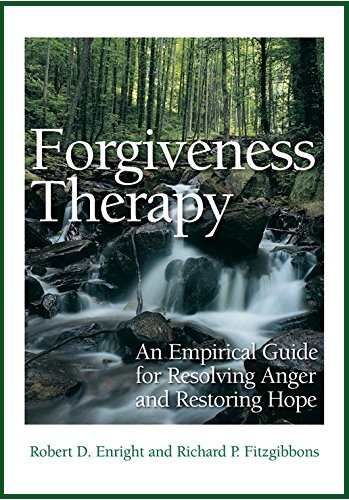 developed with psychiatrist Dr. Richard Fitzgibbons through the American Psychological Association, is the basis for the world’s first online forgiveness education course for psychologists, social workers, nurses, and other professional counselors. It is offered exclusively through the IFI.
developed with psychiatrist Dr. Richard Fitzgibbons through the American Psychological Association, is the basis for the world’s first online forgiveness education course for psychologists, social workers, nurses, and other professional counselors. It is offered exclusively through the IFI.
“When I first began exploring the virtue of forgiveness, I was unable to find a single scientific journal article on forgiveness that had been published anywhere in the world,” Dr. Enright recalls. “Today there are literally hundreds of such articles and based on the demand for our research tools, that number will soon be growing exponentially.”
Dr. Enright’s forgiveness research tools are available free upon request at the International Forgiveness Institute website: internationalforgiveness.com or via email: director@internationalforgiveness.com.
Liberia Seeks Peace Through Forgiveness
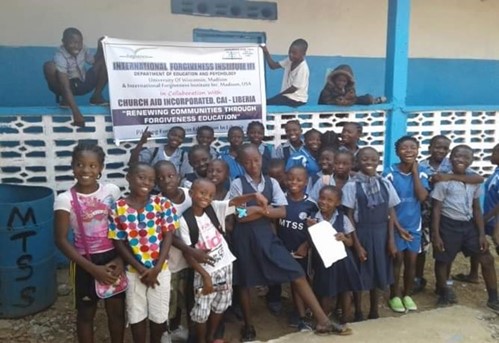
Forgiveness Education class at Mother Tegeste Stewart Apostolic Pentecostal School in Brewerville, Monrovia, Liberia.
Bishop Brown has been working with IFI co-founder Dr. Robert Enright to implement elementary and secondary school Forgiveness Education initiatives (including for all 500 students at the Mother Tegeste Stewart Apostolic Pentecostal School in Brewerville), after-school forgiveness education clubs, and Sunday School forgiveness lessons. Since 2017, Group Forgiveness interventions also have been incorporated into the LFEP thanks to Bishop Brown’s significant role in governmental affairs.
“I suggested that approach, in all humility, because dialogue will not be fruitful if those engaging in the dialogue are still very angry about past grievances,” Dr. Enright explained. “Forgiveness is a scientifically-supported way of eliminating that anger.”
- Can Group Forgiveness In Liberia Lead to Peace?
- A New Strategy for Peace in the World. . . The Enright Forgiveness Inventory
- First Ebola, Now Coronavirus: Liberia Suffers Again

